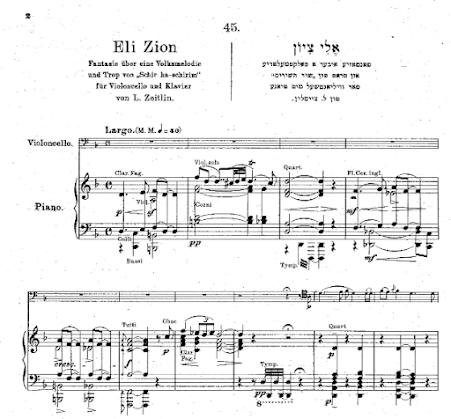“One of the challenges we’ve had, politically and educationally, is that the idea of Hebrew has been tied in with a particular nation state in the past 75 years. While that has some advantages – suddenly you have 10 million native speakers of the language – it also has educational disadvantages because people are thinking Hebrew is quite a political thing. Whereas no one thinks that about Latin, it’s easier to sell it as politics-free than Hebrew, which immediately makes people think: what am I doing with this country of Israel? Do I like it? Do I want to go there?“But part of my role is to say: Hebrew has a massively and really fascinatingly long history, and has nothing to do with the nation state that happens to exist today in the 21st century. You can study medieval Hebrew and be enthralled by the poetry and the philosophy without coming across as taking a stand on a contested issue.”
During the Middle Ages, Zionides from the pens of the greatest poets formed the chief comfort and consolation of the people. As early as the time of Ibn Gabirol (11th cent.) songs of Zion were incorporated in the liturgy, partly as lamentations for the Ninth of Ab and partly as tefillot and piyyuṭim. Among the songs of lamentation for Zion which are sung on the Ninth of Ab the following may be specially referred to: a song beginning with the words
and giving a vivid description of the destruction of Zion; the well-known song which begins with the words

, and in which Samaria and Jerusalem try to excel each other in the description of the misfortune which has fallen upon them; and, above all, the song with the refrain:
("Zion and her cities wail like a woman in childbirth, and like a virgin clothed in sackcloth for the man of her youthful choice").
The most important of Ibn Gabirol's Zionides are the poem beginning with the words:
("Send a prince to the condemned people which is scattered hither and thither").
Judah ha-Levi (1140) was the author of the Zionide beginning:
"Zion, wilt thou not send a greeting to thy captives, Who greet thee as the remnant of thy flocks? From West to East, from North to South, a greeting, From far and near, take thou on all sides. A greeting sends the captive of desire, who sheds his tears Like dew on Hermon; would they might fall on thy hills."
The encyclopedia entry goes on to say that the Zionides continued into the late 1800s with Zionist poems and songs, including Hatikvah.
These songs of Zion show a continuous and unbroken love by Jews of the Land of Israel and Zion. Maybe this makes students at Cambridge uncomfortable, but the connection is unmistakable - in fact, the medieval poetry of Zion is the best proof that Jews have always yearned to return to their land.
|
"He's an Anti-Zionist Too!" cartoon book (December 2024) PROTOCOLS: Exposing Modern Antisemitism (February 2022) |
 |

 Elder of Ziyon
Elder of Ziyon

 Buy
Buy 





















